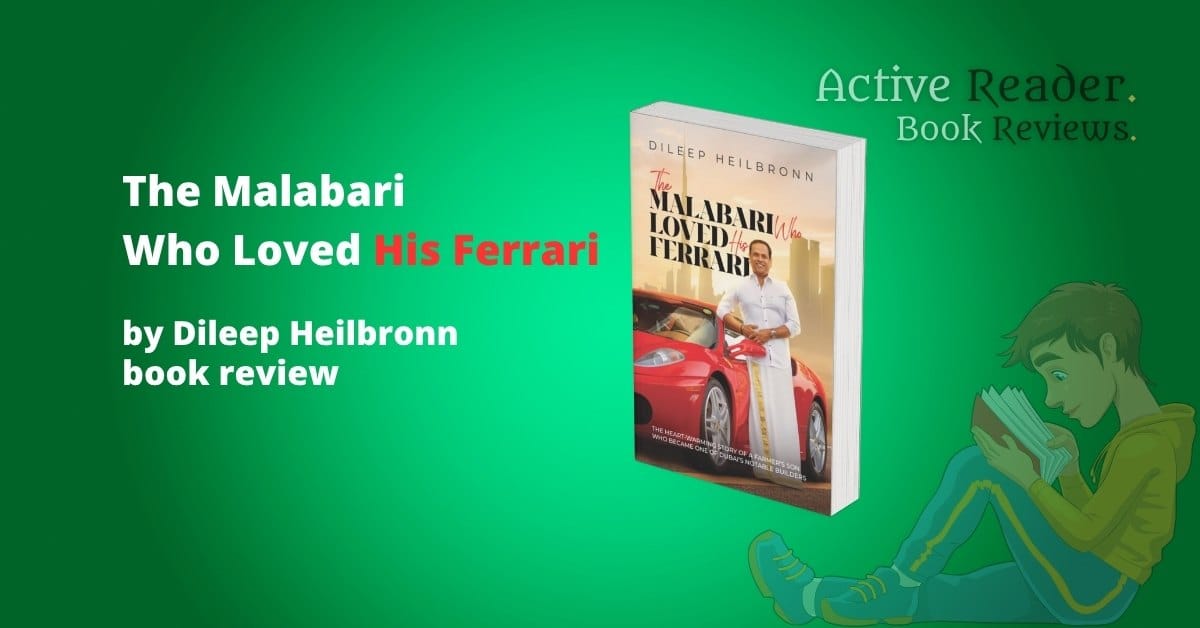A truly transformative autobiography does more than chronicle success—it lays bare the soul of the journey, revealing the quiet sacrifices, the unspoken doubts, and the emotional alchemy that turns struggle into triumph. Dileep Heilbronn’s The Malabari Who Loved His Ferrari achieves this with remarkable clarity, offering not just a memoir but a mirror for anyone who has ever dared to dream beyond their circumstances. From the very first pages, where he recounts landing in Dubai in 1991 with just $10 to his name, the book establishes its central theme: resilience is not the absence of hardship but the refusal to let it define you. That suitcase gifted by his friend Maniyettan, a symbol of both his humble beginnings and the loyalty that would anchor his rise, becomes a recurring motif, a reminder that success is never a solo endeavour. What follows is a masterclass in grit, gratitude, and the art of building a life that honours both ambition and humanity.
Dileep Heilbronn’s early years in Dubai are a study in contrasts: the labor camp in Al Awir with its window AC, a small luxury that felt like salvation; the mentorship of figures like Mr. John Andrew Papadouris, who became a “godfather” in a foreign land; and the relentless discipline of punctuality that he adopted as non-negotiable. These vignettes are more than anecdotes; they’re foundational lessons in the anatomy of perseverance. His description of Dubai as a “classroom” is particularly striking, framing the city not just as a backdrop but as an active participant in his transformation. The prose here is unflinching, whether he’s admitting to the guilt of leaving employers without notice or the visceral frustration of selling his first car, a Ford Tempo, to manage loan payments. These moments are rendered with such specificity that they transcend the personal, becoming universal touchstones for anyone who has faced the sting of compromise.
What elevates the narrative beyond conventional rags-to-riches tropes is Heilbronn’s introspection about the cost of ambition. His reflections on relationships, how they fray when neglected, how forgiveness can reweave them, add layers of emotional depth. The letters he wrote to loved ones in a pre-digital era, painstakingly maintained connections, speak to a man who understood early that success without community is hollow. This theme crescendos in his meeting with MJ, his second wife, a relationship that unfolds with the cadence of a well-paced novel. Her initial reservations about wealth (“I just want a simple life,” she tells him) and his earnest efforts to win her family’s trust, including a pivotal trip to the Philippines, are narrated with a tenderness that balances the book’s harder-edged business lessons. Their bond, forged over shared rounds of golf and mutual respect, becomes a testament to Heilbronn’s belief that love, like ambition, requires patience and presence.
The book’s quieter passages—like his obsession with collecting pencils from every country he visits—reveal a man deeply attuned to the poetry of small things. These 170 pencils are more than souvenirs; they’re tactile memories, anchors to the past in a life perpetually in motion. Similarly, his decision to build a family home in Emirates Hills, a project delayed by his children’s educations and familial sentiment, becomes a metaphor for his philosophy: legacy isn’t just about wealth, but about creating spaces where love and memory can reside. The description of the house’s theatre room, swimming pool, and, crucially, ample parking for his car collection is laced with a quiet pride, not in the opulence itself, but in what it represents: a life built deliberately, brick by brick.
The author’s reflections on India further enrich the narrative, revealing a man caught between worlds. His praise for the country’s “hospitality, family bonds, and history” over Western infrastructure is less a critique than a celebration of the intangible riches that shaped him. This duality, featuring a Malayali boy who never let go of his roots, even as he embraced Dubai’s opportunities, infuses the book with a rare emotional resonance. It’s there in his choice to drive a Kerala-registered Range Rover in the UAE, a defiant nod to his identity, and in his insistence that development should “nurture the human spirit,” not just erect skyscrapers.
The closing chapters, where Heilbronn contemplates legacy and gratitude, are the book’s beating heart. His pledge to donate all book proceeds to charity isn’t performative; it’s the logical endpoint of a life that has always measured success by its capacity to uplift others. The line “I would relive my life exactly as it was” is a radical statement of contentment, one that rejects the hubris of hindsight and embraces every stumble as a necessary part of life. For readers, especially young strivers, this is the book’s greatest gift: it demystifies success while dignifying the struggle.
The Malabari Who Loved His Ferrari is, ultimately, a story about the alchemy of perspective: how a man can look back at a journey marked by labour camps, sold cars, and sleepless nights and see not lack, but abundance. Heilbronn’s writing, straightforward yet layered with subtext, mirrors his ethos: ambition and empathy need not be at odds. Whether describing the thrill of his first Ferrari (“proof the boy in the rickshaw had outrun his past”) or the quiet joy of a pencil’s texture, he reminds us that success is not a destination but a mosaic of choices, relationships, and, above all, the willingness to keep learning. In an era of curated highlight reels, this book’s power lies in its unvarnished humanity—a reminder that the most enduring legacies are built not just on what we achieve, but on how we remember, honour, and give back.
Get a copy from Amazon Now – click here.
Review by Vyom for Active Reader
The Malabari Who Loved His Ferrari by Dileep Heilbronn: Book Review
- Active Reader's Score
Summary
It is a compelling autobiography of life thus far, lessons and realisations, and a relentless chase of dreams that is still ongoing, albeit with a tempered notion of fulfilment and realisation that wealth isn’t everything in this world.



No Comment! Be the first one.